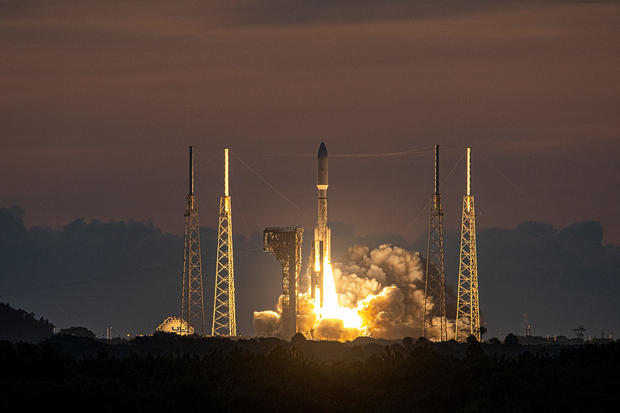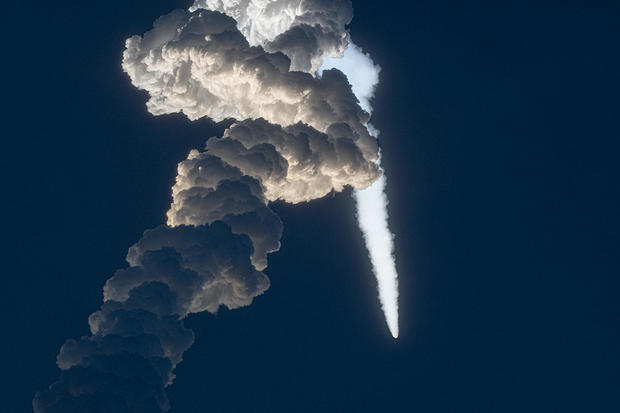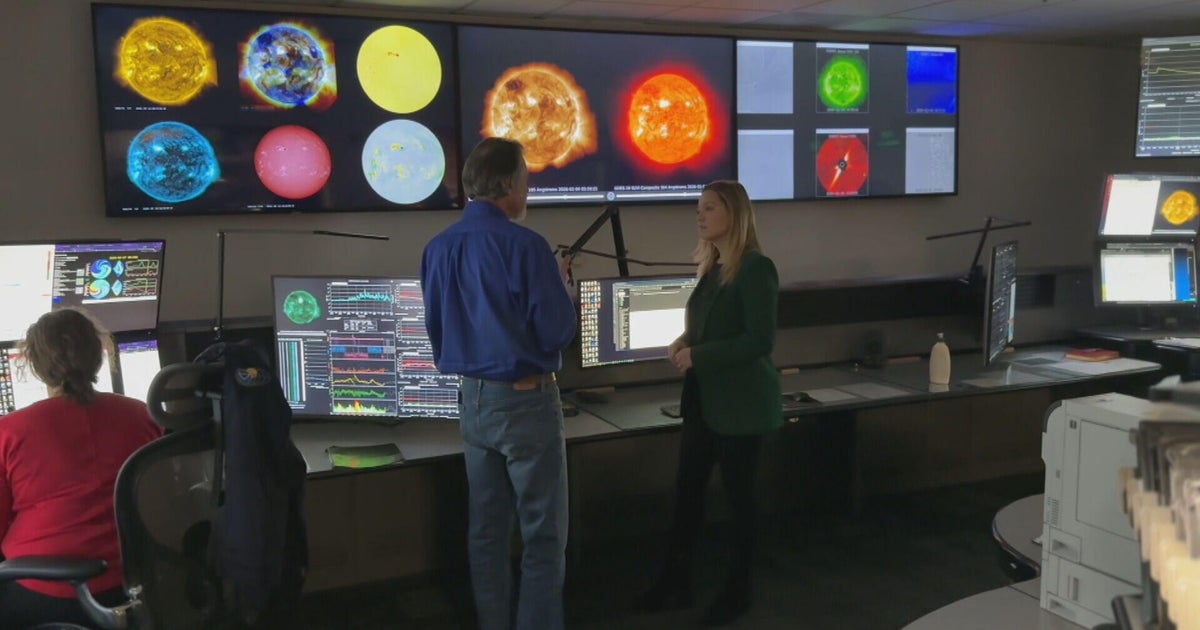Atlas 5 rocket blasts off on milestone U.S. Space Force mission
A United Launch Alliance Atlas 5 rocket carrying a classified U.S. Space Force satellite — the booster's final national security payload — blasted off from Cape Canaveral two minutes after sunrise Tuesday and streaked into space to kick off a secrecy-shrouded mission.
Powered by a Russian-built RD-180 first stage engine and five Northrop Grumman strap-on solid-fuel boosters, the Atlas 5 roared to life at 6:45 a.m. EDT and majestically climbed away from pad 41 at the Cape Canaveral Space Force Station atop 2.7 million pounds of thrust.
Putting on a spectacular early morning show, the five strap-ons boosted the rocket and its payload out of the lower atmosphere and then fell away one minute and 45 seconds after liftoff.
The ascent continued on the power of its first stage RD-180 engine but as usual with classified launches, ULA ended its live webcast before the Atlas 5's second stage took over the ascent.
The rest of the flight was carried out in secrecy with no details provided about the duration of the first stage "burn" or subsequent firings of the upper stage Aerojet Rocketdyne Centaur engine. But the Space Force released a statement later in the day saying the payload was released in the proper orbit about seven hours after liftoff.
"This is a bittersweet moment for us," Col. James Horne, a senior launch manager with Space Systems Command, told reporters before the flight. "I have had the privilege of sitting (on) console for the very first national security Atlas Launch in 2007 ... and here we are with our last national security Atlas."
United Launch Alliance, a partnership between Boeing and Lockheed Martin, has a long history launching military and National Reconnaissance Office spy satellites using the Atlas family and now-retired Delta 2 and more powerful Delta 4 rockets. Tuesday's launch was the company's 100th national security flight.
"This is an extremely important mission for us, for the U.S. Space Force, particularly in this time of great power competition," Horne said.
But no details about the payload were provided. Gary Wentz, ULA manager of government and commercial programs, said only that "it's one of the most critical payloads that we've put up to date. We can't talk a lot about that, but it's definitely critical to the defense of our nation as well as our allies."
ULA is in the process of transitioning to new, lower-cost Vulcan rockets while it flies out its remaining inventory of Atlas 5s. Unlike the Atlas 5 with its Russian-built RD-180 engine, the Vulcan is an all-American rocket with methane-burning first stage engines provided by Jeff Bezos' Blue Origin.
Fifteen Atlas 5s remain in ULA's inventory. Six are earmarked for International Space Station crew rotation missions using Boeing's Starliner capsule with the rest booked to carry Amazon's Kuiper internet satellites and a commercial communications relay station.
ULA's new Vulcan rocket blasted off on its maiden flight in January with a second flight on tap later this year. Assuming that mission goes well, the Vulcan will be certified for use carrying national security payloads.





